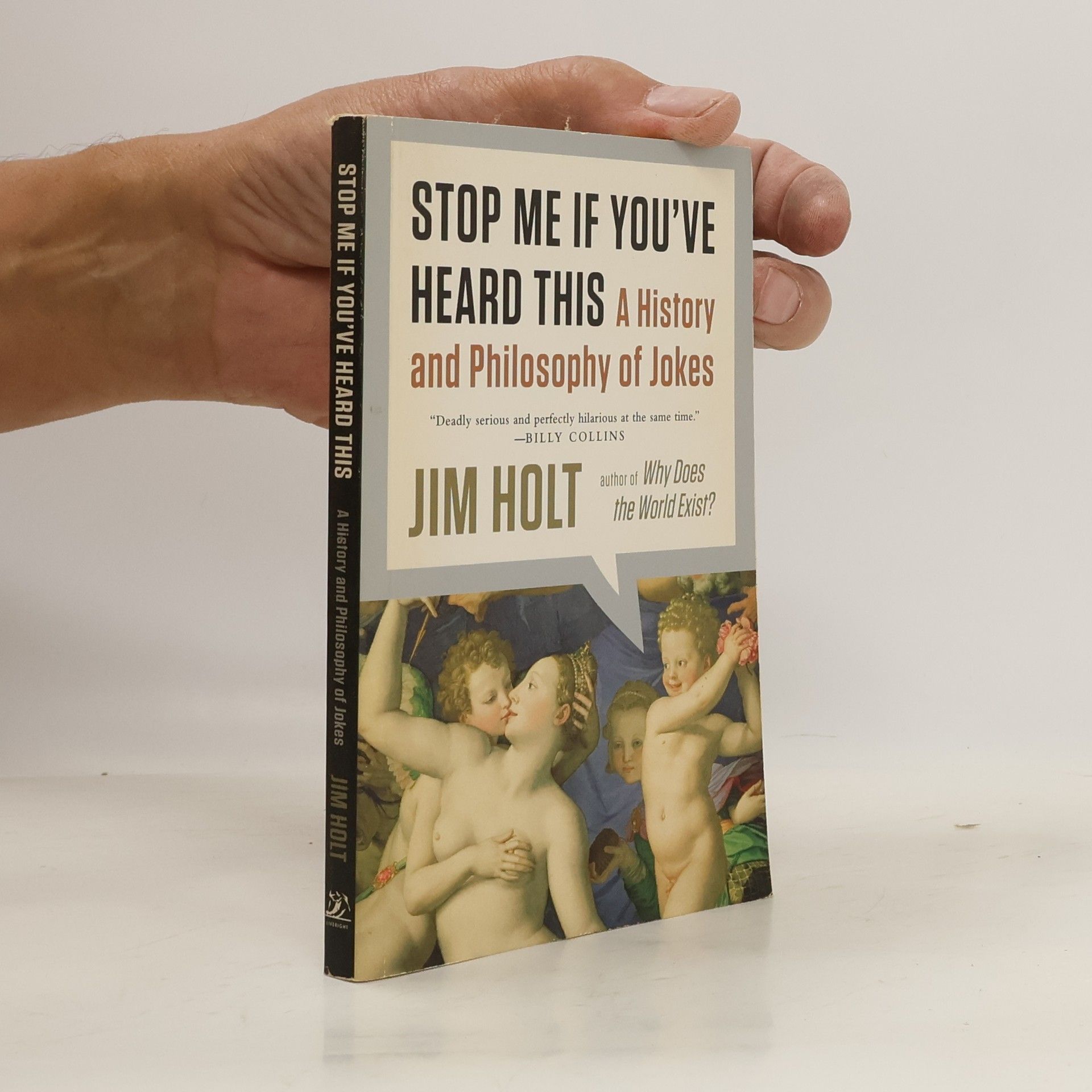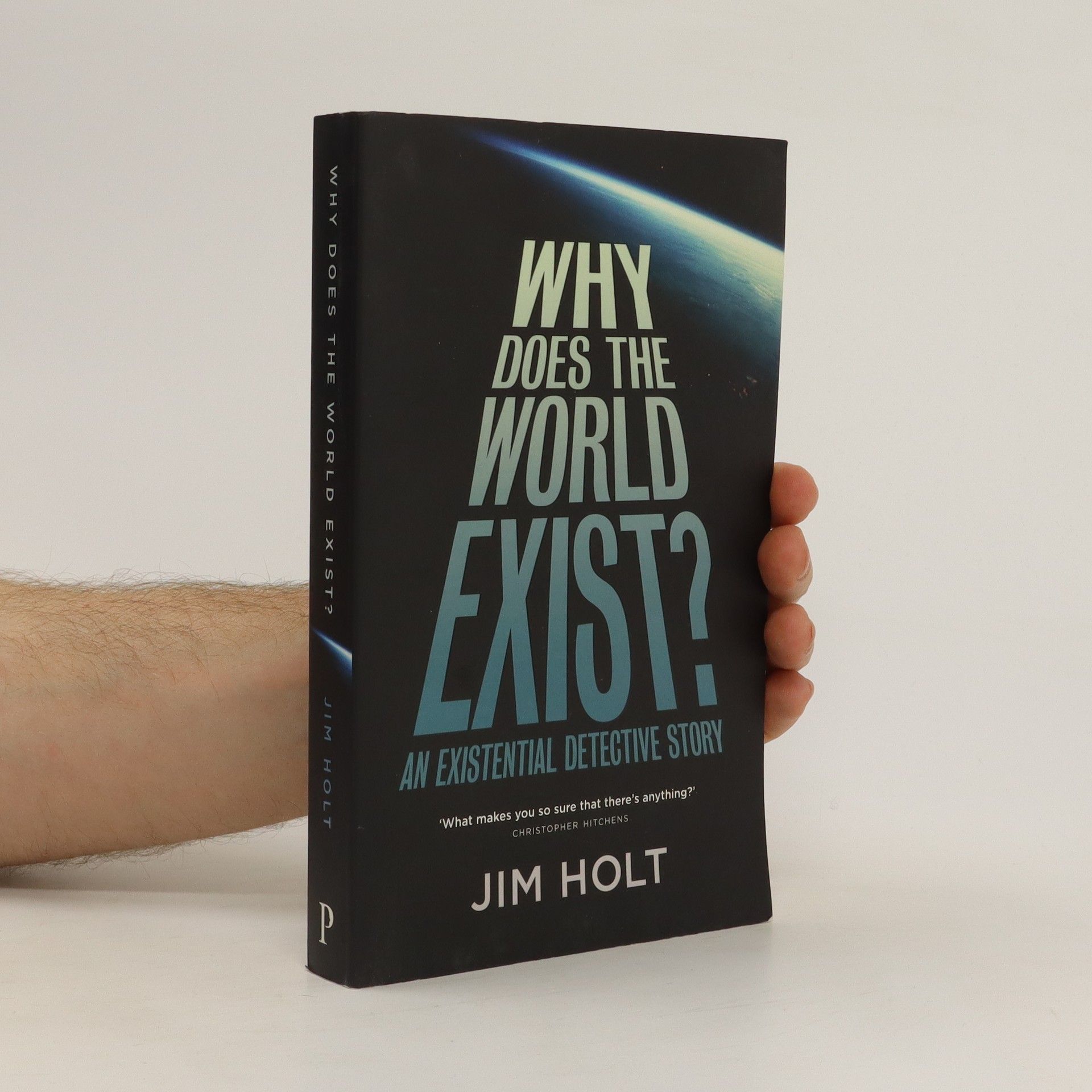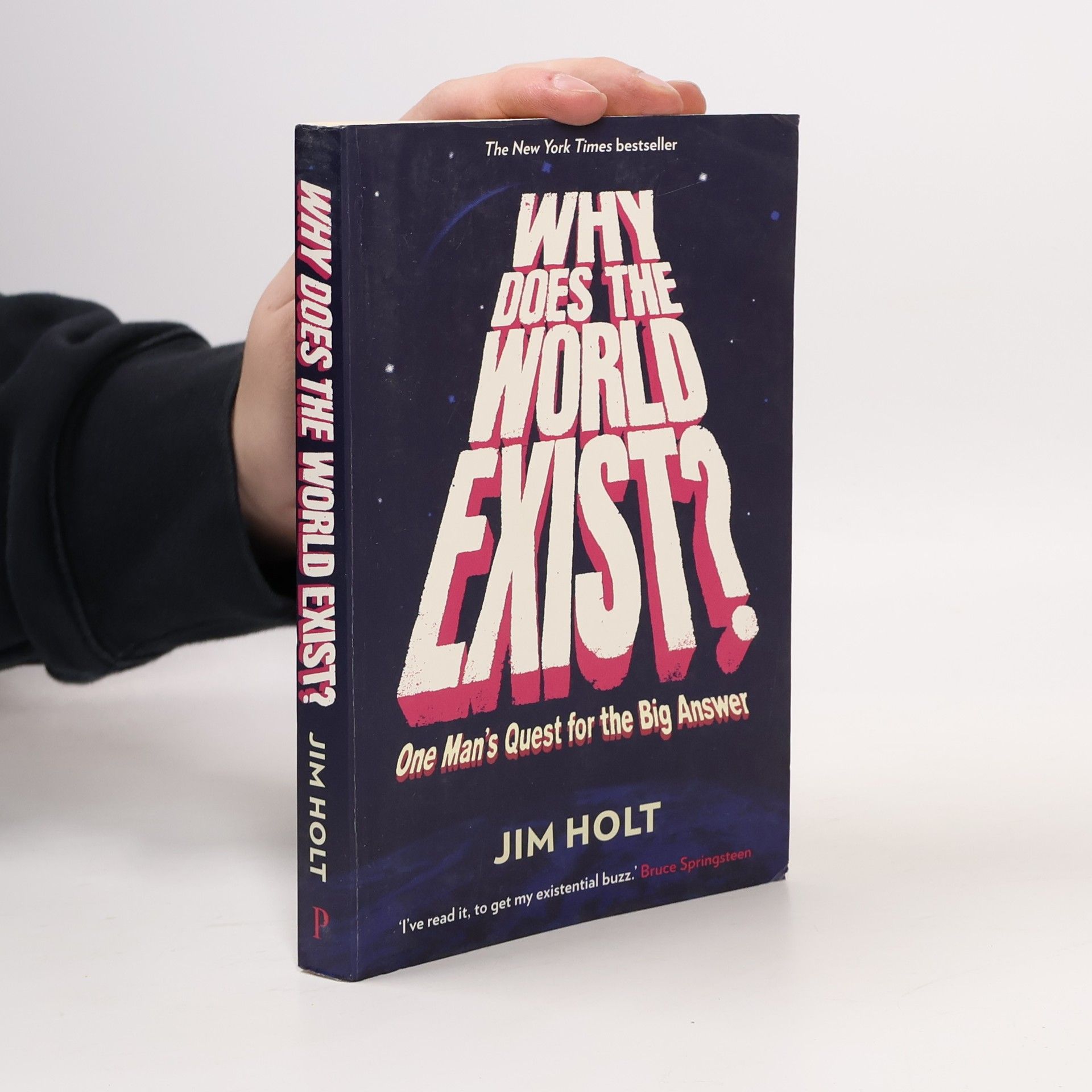'Why is there a world rather than nothing at all?' remains the most curious and most enduring of all metaphysical mysteries. Moving away from the narrower paths of Christopher Hitchens, Roger Penrose and Stephen Hawking, the celebrated essayist Jim Holt now enters this fascinating debate with his broad, lively and deeply informed narrative that traces all our efforts to grasp the origins of the universe.With sly humour and a highly original personal approach Holt takes on the role of cosmological detective. Suggesting that we might have been too narrow in limiting our suspects to God and the Big Bang, he tracks down, among others, an eccentric Oxford philosopher, a Nobel Laureate physicist, a French Buddhist monk, and John Updike just before he died, to pursue this cosmic puzzle from every angle. As he pieces together a solution - while offering useful insights into time, consciousness, and eternity - he sheds fascinating new light on the meaning of existence.
Jim Holt Libri
Jim Holt è un collaboratore di lunga data del New Yorker, dove ha esplorato argomenti che spaziano dalla teoria delle stringhe e il tempo all'infinito, i numeri, la verità e la stupidità. La sua scrittura è caratterizzata da un'immersione profonda in idee complesse, cercando di illuminare concetti astratti con chiarezza e arguzia. Holt affronta senza timore le questioni filosofiche, esplorando le connessioni tra scienza e percezione umana. I lettori apprezzeranno il suo acuto intelletto e la sua prosa accattivante.







When Einstein Walked with Gödel
Excursions to the Edge of Thought
From Jim Holt, the New York Times bestselling author of Why Does the World Exist?, comes an entertaining and accessible guide to the most profound scientific and mathematical ideas of recent centuries in When Einstein Walked with Gödel Excursions to the Edge of Thought. Does time exist? What is infinity? Why do mirrors reverse left and right but not up and down? In this scintillating collection, Holt explores the human mind, the cosmos, and the thinkers who've tried to encompass the latter with the former. With his trademark clarity and humor, Holt probes the mysteries of quantum mechanics, the quest for the foundations of mathematics, and the nature of logic and truth. Along the way, he offers intimate biographical sketches of celebrated and neglected thinkers, from the physicist Emmy Noether to the computing pioneer Alan Turing and the discoverer of fractals, Benoit Mandelbrot. Holt offers a painless and playful introduction to many of our most beautiful but least understood ideas, from Einsteinian relativity to string theory, and also invites us to consider why the greatest logician of the twentieth century believed the U.S. Constitution contained a terrible contradiction--and whether the universe truly has a future.
Moving away from the narrower paths of Christopher Hitchens, Roger Penrose and Stephen Hawking, the celebrated essayist Jim Holt now enters this fascinating debate with his broad, lively and deeply informed narrative that traces all our efforts to grasp the origins of the universe
Stop Me If You've Heard This: A History and Philosophy of Jokes
- 160pagine
- 6 ore di lettura
In "Stop Me If You've Heard This," Jim Holt explores the evolution of jokes from ancient Athens to modern comedy. The book blends humor and philosophy, examining various types of jokes and their connections to the theories of great thinkers like Aristotle and Freud, creating a unique mix of the absurd and profound.
Als Einstein und Gödel spazieren gingen
Ausflüge an den Rand des Denkens
Legendary among physicists and mathematicians, the campus walks at Princeton connected the nearly 70-year-old Albert Einstein with the 25-year-younger mathematician Kurt Gödel. Both figures revolutionized their fields, transcending boundaries and revealing new insights. Gödel chose to focus solely on mathematical problems with philosophical dimensions, making him a kindred spirit to Jim Holt, a philosopher and mathematician who explores profound questions and those dedicated to them. In this narrative, Holt recounts their friendship while also chronicling the revolutionary intellectual upheavals of the 20th century. The book includes 22 additional stories and reflections, written in beautifully crafted language enriched with biographical and cultural anecdotes. Holt addresses the "most exciting intellectual achievements" he has encountered, touching on cosmological thinking about time and space, infinity in both the vast and the minute, the rise of the computer age, the code of life, and the nature of truth. At times, science and philosophy take center stage, while at others, the extraordinary stories of significant figures are captivatingly told by Holt, blending depth, intimacy, and a unique personal perspective.
Idee, które zmieniły świat
- 496pagine
- 18 ore di lettura
W tym błyskotliwym zbiorze esejów Holt bada ludzki umysł i kosmos oraz opisuje myślicieli, którzy próbowali zrozumieć to drugie za pomocą tego pierwszego. Z charakterystyczną dla siebie jasnością i poczuciem humoru Holt bada tajemnice mechaniki kwantowej, poszukiwanie podstaw matematyki oraz naturę logiki i prawdy. W międzyczasie przedstawia nieszablonowe szkice biograficzne sławnych oraz niedocenionych myślicieli, od fizyczki Emmy Noether po pioniera komputerowego Alana Turinga i odkrywcę fraktali, Benoita Mandelbrota. Książka oferuje proste i zabawne wprowadzenie do wielu naszych najpiękniejszych, ale najmniej zrozumiałych idei, od teorii względności Einsteina po teorię strun, a także zachęca nas do zastanowienia się, dlaczego największy logik XX wieku uważał, że konstytucja Stanów Zjednoczonych zawiera nieusuwalną sprzeczność ? i czy wszechświat naprawdę ma przyszłość. „W tych esejach, powstałych w ciągu ostatnich 20 lat, Holt podejmuje tematy nieskończoności w skali mikro i makro, iluzji czasu, narodzin eugeniki, tak zwanego nowego ateizmu, smartfonów i rozrywki. To elegancka historia najnowszych idei (...). Holt jest autorem uniwersalnym, więc kiedy umiejętnie prowadzi nas od teologii przez kosmologię do poezji, przypominamy sobie, że specjalizacja jest współczesnym wynalazkiem”. ? The New York Times „Fantastyczny zbiór esejów [wypełniony] opowieściami o ekscentrycznych geniuszach”. ?Publishers Weekly